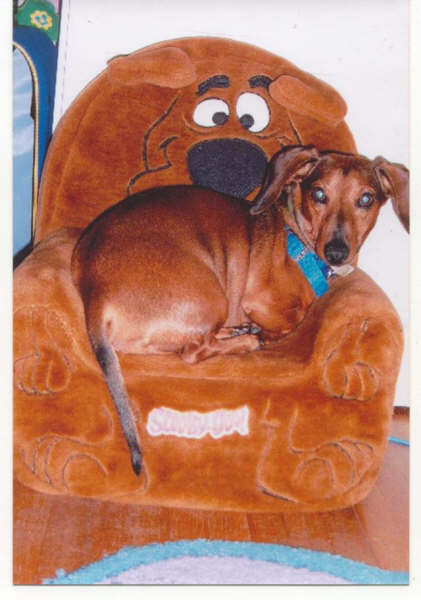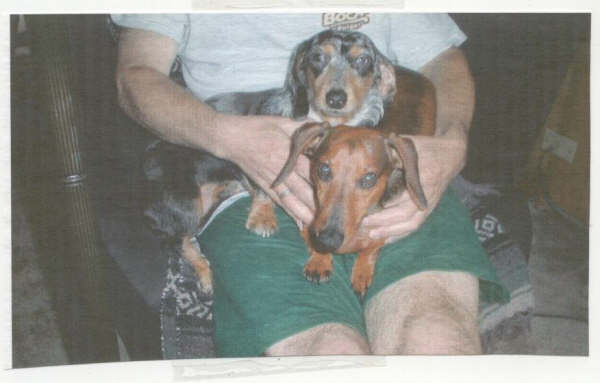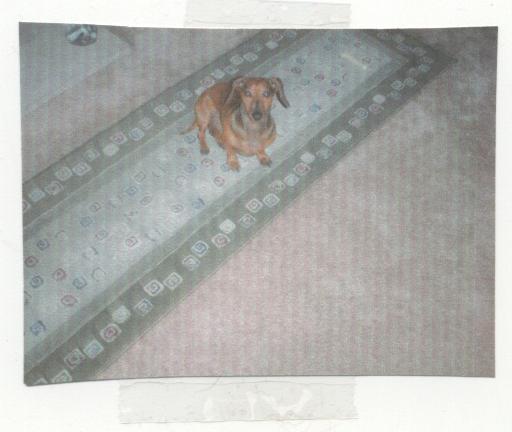THE SILVER STAR FAMILIES OF AMERICA ENDORSE SERVICE DOGS FOR
THOSE WOUNDED WITH PTS(D)
Janie Orman, National President of the SSFOA stated, “There is ample scientific evidence that suggests that a service dog would be of great assistance to our service members.”
These animals are trained to:
1. Accompany the veteran into stores, restaurants, buses, trains, air planes, work and any other public places that the vet may need to go.
2. Allow the veteran to remain calm by preventing people from crowding around him in public places by placing his or her self in front the vet thus providing a comfortable space for the vet.
3. Watching behind the veteran by calmly preventing anyone by rushing up behind him and surprising him. (The dog is never aggressive towards people but just provides a barrier and alerts the vet to people who may be approaching from behind).
4. Provide a reassuring presence for the vet by anticipating his needs both at home and outside in public.
Service dogs will be a great step forward for those with severe PTS(D)
However many things must be taken into consideration before a prescription is written for a service dog.
According to the Americans With Disabilities Act (ADA), a service animal must be individually trained to do work or tasks of benefit to a disabled individual in order to be legally elevated from pet status to service animal status.
A service dog can learn a number of helpful tasks to assist his partner to cope during a sudden flare up of symptoms, medication side effects, or in a situation requiring outside help. see full article . . . http://www.iaadp.org/psd_tasks.html
SSFOA does not consider PTS (D) a Psychiatric disorder but the information contained here on service animals still applies.
Allan Schwartz, Ph.D. Weblog:
Dr. Schwartz's Weblog
Used with permission. Copyright CenterSite, LLC. All rights reserved
Veterans, PTSD and Psychiatric Service Dogs
Posted by Allan N. Schwartz, LCSW, PhD on Fri, Jun 6th 2008
In the previous posting we discussed the invisible disorder, PTSD. The discussion included a variety of reasons why Iraq and Afghani veterans have difficulty getting the help they need if, among other things, they suffer from PTSD. One of the greatest obstacles these veterans face is their own resistance to admitting they need help. The physical injuries suffered by these veterans are caused by combat, are visible and are both explainable and, in certain ways are acceptable. However, because PTSD falls into the category of a psychiatric disorder, many soldiers think of it as stigmatizing and unacceptable. In addition, except for close family and friends, very full people are aware of the symptoms suffered by these vets
In order to review, the symptoms of PTSD include such things as:
1. Anger and irritability.
2. Startle responses to sudden noises or movements.
3. Extreme anxiety and panic attacks.
4. Depression.
5. Social withdrawal and self isolation.
6. Nightmares and sleep disturbance (nightmares are often flashbacks to combat and are experienced as very real).
7. And many other symptoms that can be found in the former article and elsewhere on Mental Help Net.
What Is A Psychiatric Service Dog?
Psychiatric service dogs are specially trained animals that are certified by private service dog organizations such as: Golden Kimba Service Dogs, NEADS(North East Assistance Dog Society, located in MA), and others that can be found on the Web at Assistance Dogs International(http://www.adionline.org)
Puppies Behind Bars (New York City) is one of the organizations that trains and places these dogs with injured Iraq and Afghan war veterans. This organization uses Labrador Retriever puppies that are paired with carefully selected prisoners who are taught to raise and train the dogs from eight weeks to fifteen months of age. The dogs are bred and selected for their calm temperament and are trained by the prisoners to do such things as:
Physical Disabilities:
1. Walk alongside a wheel chair.
2. Open a refrigerator door and pull bagged lunches out and bring to the disabled veteran.
3. Help the veteran undress by pulling sox off his feet.
4. Jump up and push the light switch on.
5. Bring the ringing telephone to the disabled vet.
6. And many other remarkable chores that allow the disabled vet to function independently.
In terms of PTSD, these dogs are trained to:
1. Accompany the veteran into stores, restaurants, buses, trains, air planes, work and any other public places that the vet may need to go.
2. Allow the veteran to remain calm by preventing people from crowding around him in public places by placing his or her self in front the vet thus providing a comfortable space for the vet.
3. Watching behind the veteran by calmly preventing anyone by rushing up behind him and surprising him. (The dog is never aggressive towards people but just provides a barrier and alerts the vet to people who may be approaching from behind).
4. Provide a reassuring presence for the vet by anticipating his needs both at home and outside in public.
How do Psychiatric Service Dogs Help Veterans with PTSD?
Many people ask this question, including the psychiatrists who treat these patients before they are willing to write a prescription for this specially trained type of dog.
Specifically, behavioral goals are set by the veteran and dog trainer who is helping the vet learn how to use the dog. This is where the certifying organizations come in such as, Golden Kimba Service Dogs or NEADS, both mentioned above.
After the dogs receive their training at Puppies Behind Bars or elsewhere, they are shipped to the certifying organizations such as Golden Kimba Service Dogs, etc, where they meet their new trainer who completes what was started in training. The dog is exposed to public places as much as possible to prepare them for life in the outside world with the veteran.
One or two weeks later, the veteran arrives and meets his or her dog. From then onward, they work with the trainer to learn everything that is needed to form a powerful bond between dog and veteran and to live in the outside world. Depending on the behavioral goals of the veteran, and that depends on the nature of the symptoms, the veteran learns to use his dog to help him function with a minimum of interference from those symptoms.
One of the challenges faced by the veteran is helping his family understand that the dog is not their pet but is his ally and helper in the world. That is why family is encouraged to accompany the veteran in this part of the training. For example, no one in the family is to walk and feed the dog. Also, the dog is Never to be left at home for any reason. Even when visiting the doctor and the psychiatrist the dog is to accompany the veteran. All of this is easier for family to understand and accept if they are present at training, can ask questions and learn about both the dog and PTSD. While I cannot report any scientific studies done to measure the effectiveness of these dogs in reducing PTSD for veterans I am able to state that Golden Kimba Service Dogs has seen these people make remarkable gains in the way they live their lives after they return home with their dog.
Psychiatric service dogs help veterans over come their social isolation in the following way:
Because the service dog needs to be walked several times per day, the veteran is forced to be outside and in public. The dog must wear an identifying cape with the training company logo on it and the vet wears a picture of ID of himself and the dog. While the purpose of the cape and ID are not designed to attract public attention, this attention happens to the benefit of the vet who is forced to answer questions of well meaning people who want to learn about the dog. In working with the trainer and the dog, in public, the veteran learns how to answer questions and deal with a curious public.
Many veterans with these dogs have reported that their anxieties and fears have been greatly reduced as a result of having the dog with them at all times. In fact, several of them reported that when they suddenly awaken at night due to a having a nightmare or hearing a noise in the house, feel relieved and calm when they realize their dog is perfectly calm and quiet. After all, if the nightmare were real, or if there were an intruder in the house, the dog would be barking and agitated.
Funding:
It can be well imagined that providing these dogs is an expensive process. The Veterans Administration does not pay for any of this. However, Puppies Behind Bars has a very effective fund raising program and is able to pay for those veterans who qualify for a psychiatric assistance dog.
Puppies Behind Bars may be found at the following web site:
TESTIMONY OF SERVICE DOGS AND THOSE THEY HELP
As a victim of the wound of PTS, and my wife Sunshine who has Parkinsons we are the owners of
two certified therapy dogs. Both of them are minature dachshunds. Scooter Pye is 9 and Tova T. is 5.
What is unique about these dogs is that they are capable of acting like therapy dogs to both Sunshine and myself.
For me Scooter is the much more attached dog. When I am having flashbacks at night he is right up by my side making
sure that I awake from the flashback. If not after a period of time, he will lick my face and paw me to bring me back from
the flashback. When I have a flashback during the day, he will always be beside me and make certain that I am not harmed
and that my mind is at least aware of his presense. Scooter will also not allow anyone to come up from behind me.
He will alert me by barking. Tova is still learning the ropes and will sit back and watch Scooter but is learning to quickly on what to do to help me.
Tova T. is highly skilled in protecting Sunshine by walking by her side in case of falls.
If Sunshine should fall, Tova will bark until someone comes to help her up, and when Sunshine suffers from a seizure both Tova and Scooter will surround her and lick her face and nudge her and can bring her out of the seizure most of the time. Both dogs can almost tell before Sunshine if she is going to have a seizure and won't leave her side. They have both been extremely instrumental in both mine and Sunshine's anxiety and panic attacks.
Besides these obvious qualities, both dogs are companions to both Sunshine and I, that brings me a sense of calmness and helps eliminate my terrible fears of being alone.While they cannot replace the presense of a human they are always willing to surround us with affection and concern.
Tova and Scooter are members of the family, if they can't go with us, we don't go. They are both rescued dogs that were abandoned. Life without them would certainly be more difficult.
In peace, Jay R
Joshua is lab and retriever mix, shelter dog from Carterat County, trained by military inmate at Camp Lejune. Joshua can open refrigerator doors and bring water, etc, he can remove clothes from washer and dryer, he can retrieve object that fall or tv remote or phone. Best of all, Joshua can help Joey remove his prosthetic leg by pulling on an attached rope at the bottom. This is major as Joey has only one hand and it is hard to break the suction of the prosthetic let. I am sure Joshua will adapt greatly to Baby Vi. Joey is so happy with having a baby and a dog now in his life. Keep us in your hearts and minds.
Gail
SILVER STAR FLAG ®
SILVER STAR BANNER TM
THE NAME "SILVER STAR SERVICE BANNER" IS TM
Copyright 2005-2010
All Rights Reserved
The Silver Star Banner and Flag is in no way connected to the Silver Star Medal
The SSFOA does NOT endorse self training of service animals
Please refer to your state laws and the ADA
The Silver Star Families of America is a non-partisan, not-for-profit charitable organization committed to supporting the United States wounded and ill military members and Veterans from all wars, past and present, and honoring their sacrifice with Silver Star Banners.Content within this web site is the sole property of The Silver Star Families of America"All photos and letters sent to the SSFOA become the property of the organization to be used in any way we deem appropriate."
SSFOA reserves the right to conduct the day to day business of the organization as they deem appropriate.. SSFOA does not and can not offer monetary or legal assistance, due to the nature of our IRS filings, it is a violation of our by-laws and mission, SSFOA cannot assist anyone in this manner.
While the SSFOA attemps to exercise due care, we are not responsible for the performance, accuracy or content of external links or individuals we offer as referals.
All materials, ideas, projects etc made for the SSFOA while you are a member becomes SSFOA property. State Coordinators and Reps will be chosen at the discretion of SSFOA National Headquarters. SSFOA is an all volunteer 501(c)(3) tax exempt nonprofit public charity organization. See your tax advisor. For more info on deductions see: http://apps2.irs.gov/charities/contributors/index.html
Questions/Comments Pertaining To This Web site CONTACT US





Silver Star shining for sacrifice, honoring wounded, ill and dying members of our Armed Forces, and bringing remembrance to those so deserving of our thanks.
We will never forget . . . WELCOME HOME!
®